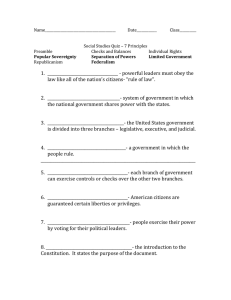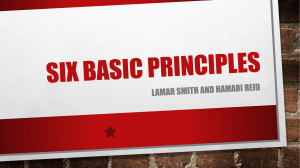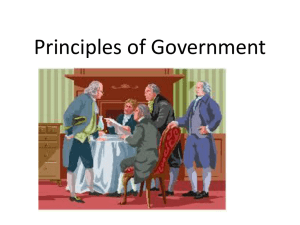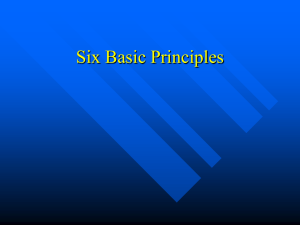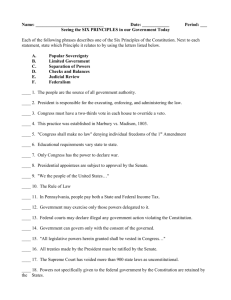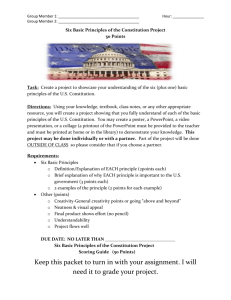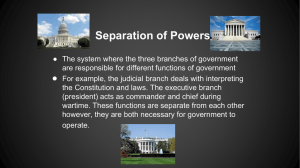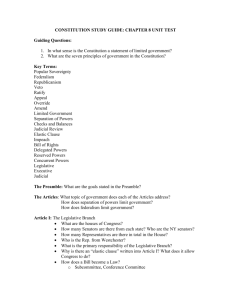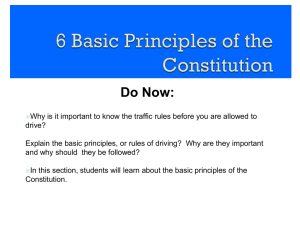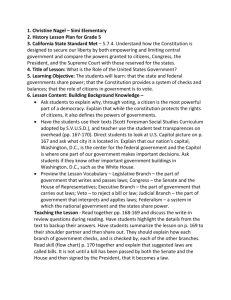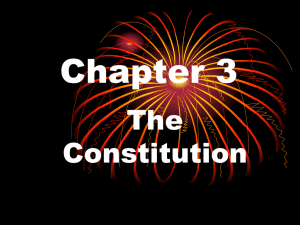7 Principles of the Constitution Notes
advertisement
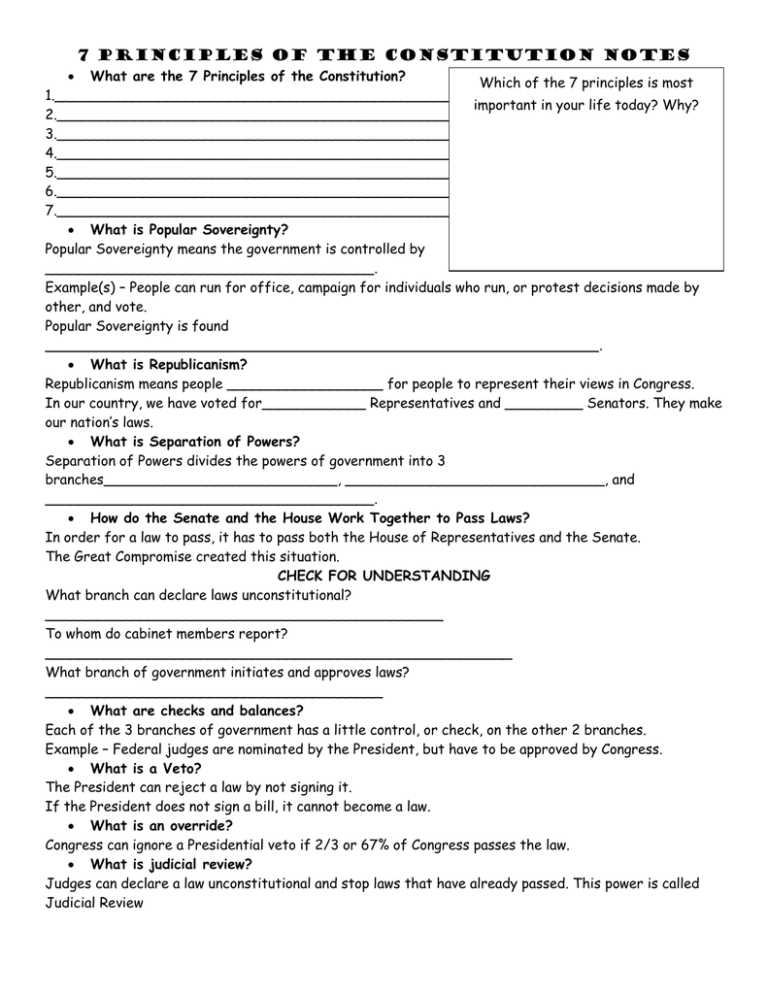
7 Principles of the Constitution Notes What are the 7 Principles of the Constitution? Which of the 7 principles is most 1._____________________________________________________ important in your life today? Why? 2._____________________________________________________ 3._____________________________________________________ 4._____________________________________________________ 5._____________________________________________________ 6._____________________________________________________ 7._____________________________________________________ What is Popular Sovereignty? Popular Sovereignty means the government is controlled by ______________________________________. Example(s) – People can run for office, campaign for individuals who run, or protest decisions made by other, and vote. Popular Sovereignty is found ________________________________________________________________. What is Republicanism? Republicanism means people __________________ for people to represent their views in Congress. In our country, we have voted for____________ Representatives and _________ Senators. They make our nation’s laws. What is Separation of Powers? Separation of Powers divides the powers of government into 3 branches___________________________, ______________________________, and ______________________________________. How do the Senate and the House Work Together to Pass Laws? In order for a law to pass, it has to pass both the House of Representatives and the Senate. The Great Compromise created this situation. CHECK FOR UNDERSTANDING What branch can declare laws unconstitutional? ______________________________________________ To whom do cabinet members report? ______________________________________________________ What branch of government initiates and approves laws? _______________________________________ What are checks and balances? Each of the 3 branches of government has a little control, or check, on the other 2 branches. Example – Federal judges are nominated by the President, but have to be approved by Congress. What is a Veto? The President can reject a law by not signing it. If the President does not sign a bill, it cannot become a law. What is an override? Congress can ignore a Presidential veto if 2/3 or 67% of Congress passes the law. What is judicial review? Judges can declare a law unconstitutional and stop laws that have already passed. This power is called Judicial Review 7 Principles of the Constitution Notes Judicial checks on ____________________________ How? Legislative checks on _________________________ How? Executive checks on __________________________ How? Executive checks on __________________________ What is Limited Government? Limited Government means everybody has to follow the same laws, even members of the government. If a Representative breaks a law or abuses his/her power, he/she would face a trial just like everybody else. What are Individual Rights? Individual Rights are personal liberties and privileges that people are born with and can not be taken away. What is Federalism? Federalism is a system of government in which powers are shared by the national and state governments. The states and national governments share powers and work together. Complete the Venn Diagram: Powers Reserved to the States Powers Delegated to the National Government

